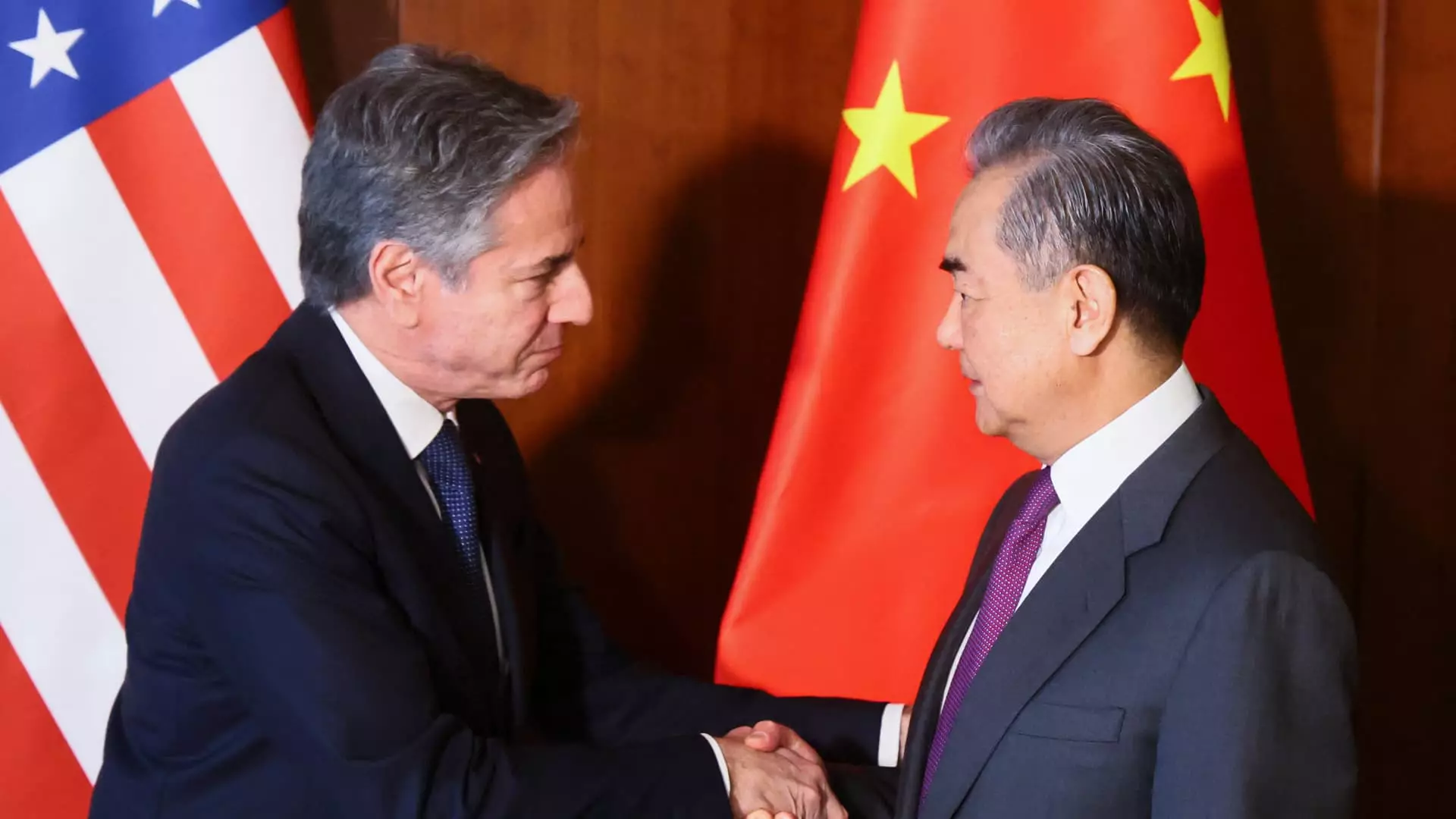In a recent meeting between China’s Foreign Minister Wang Yi and U.S. Secretary of State Antony Blinken, Wang urged the United States to lift sanctions on Chinese companies and individuals. He argued that attempts to de-couple from China would ultimately harm the United States rather than benefit it. This plea comes at a crucial time when tensions between the two global superpowers have been escalating due to various economic and trade issues.
The Impact of Sanctions
The United States has imposed sanctions on several Chinese companies, claiming that they have ties to China’s military or are involved in alleged human rights abuses in regions like Xinjiang. While the U.S. government justifies these sanctions as necessary measures to protect national security and human rights, China sees them as unfair restrictions on its legitimate development rights. These sanctions have not only strained bilateral relations but also hindered cooperation on important regional issues.
A Step Towards Reconciliation
Despite the existing points of friction, there have been recent signs of improvement in Sino-U.S. relations. Both countries have taken steps to re-establish channels of communication and address shared concerns. The meeting between Wang and Blinken was described as “frank, substantial and constructive”, indicating a willingness to engage in dialogue and find common ground on key issues.
Wang emphasized the importance of not escalating tensions by pursuing strategies like ‘de-China’ and ‘decoupling from China’. He warned that such actions would only backfire on the United States and expressed the need for a more cooperative approach to address bilateral differences. By maintaining open lines of communication and seeking mutual understanding, both countries can work towards a more stable and constructive relationship.
During their meeting, Wang and Blinken also discussed regional issues such as the Ukraine crisis and the Korean Peninsula. While specific details were not disclosed, it was stated that envoys from both sides would continue to engage with each other. This demonstrates a shared commitment to addressing complex geopolitical challenges and finding peaceful solutions through dialogue and cooperation.
In discussing the Taiwan issue, Wang reiterated China’s stance on the one-China principle and the territorial integrity of Taiwan. He highlighted the need for the United States to respect China’s sovereignty claims in the region to ensure stability in the Taiwan Strait. While the U.S. maintains unofficial relations with Taiwan, it is important for both countries to approach this sensitive issue with caution and diplomatic tact.
A Path Towards Collaborative Engagement
The recent interactions between China and the United States, including agreements reached on fentanyl, military communications, and artificial intelligence, signal a positive shift towards greater cooperation. Both countries have shown a willingness to engage in dialogue at various levels and address shared concerns through constructive engagement. By prioritizing mutual interests and seeking common ground, China and the U.S. can build a more stable and productive relationship for the future.
Lifting sanctions on Chinese companies and individuals could serve as a significant step towards building trust, fostering cooperation, and addressing shared challenges. By adopting a more inclusive and dialogue-based approach, Washington can contribute to a more stable and mutually beneficial relationship with China. It is essential for both countries to prioritize diplomacy, respect each other’s sovereignty, and work towards constructive engagement on key regional and global issues.


Leave a Reply